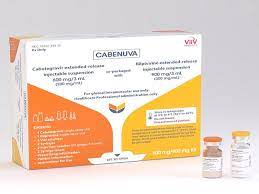Pfizer, Inc. (NYSE: PFE), a global leader in the healthcare sector, continues to capture investor attention with its robust portfolio of biopharmaceutical products. Known for its pioneering efforts in drug manufacturing, Pfizer has stood the test of time since its founding in 1849, delivering medicines and vaccines that address a wide array of therapeutic areas, including cardiovascular, infectious diseases, and chronic immune conditions.
Currently trading at $24.20, Pfizer presents a compelling case for investors seeking both potential growth and income. The stock’s 52-week range of $21.59 to $31.39 highlights its volatility, yet the company’s steadfast position in the market, reinforced by a formidable market capitalization of $137.25 billion, provides a solid foundation for long-term investment strategies.
A significant aspect drawing attention is Pfizer’s substantial dividend yield of 7.11%. This yield is notably attractive in the current low-interest-rate environment, offering income-focused investors a reason to consider adding Pfizer to their portfolios. However, the payout ratio stands at 122.46%, indicating that the dividends are being paid out of reserves, which could raise sustainability concerns if earnings do not improve.
Analysts’ ratings reflect a mixed but cautiously optimistic sentiment towards Pfizer. With 8 buy ratings, 15 hold ratings, and only 1 sell rating, the consensus leans towards stability with a hint of potential. The average target price of $29.25 suggests a potential upside of 20.85%, underscoring the potential for capital appreciation alongside dividend income.
Valuation metrics paint a nuanced picture. The forward P/E ratio of 7.84 implies that the market expects earnings to improve, making Pfizer potentially undervalued compared to its peers in the drug manufacturing industry. However, the absence of a trailing P/E and PEG ratio, combined with negative revenue growth of -7.80%, points to the challenges Pfizer faces in maintaining its growth trajectory.
Technically, Pfizer’s stock is trading below both its 50-day and 200-day moving averages of $24.61 and $26.94, respectively. This technical setup suggests potential headwinds in the short term, but the Relative Strength Index (RSI) of 57.59 indicates that the stock is not currently overbought or oversold, providing a neutral stance for momentum investors.
Pfizer’s strategic collaborations with industry giants like Bristol-Myers Squibb and BioNTech SE further solidify its competitive advantage. These partnerships, particularly with BioNTech for COVID-19 vaccines, have been instrumental in driving the company’s innovation pipeline, which remains a crucial element for future growth prospects.
While the financial metrics present a mixed bag, Pfizer’s extensive product lineup and market position provide a buffer against sector-specific volatilities. Investors considering Pfizer should weigh the high dividend yield and potential upside against the company’s current earnings challenges and the sustainability of its dividend payouts. As the healthcare landscape evolves, Pfizer’s ability to innovate and adapt will be pivotal in realizing its growth potential and delivering value to shareholders.







































